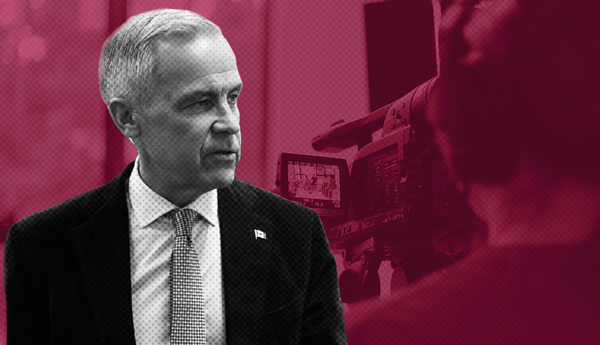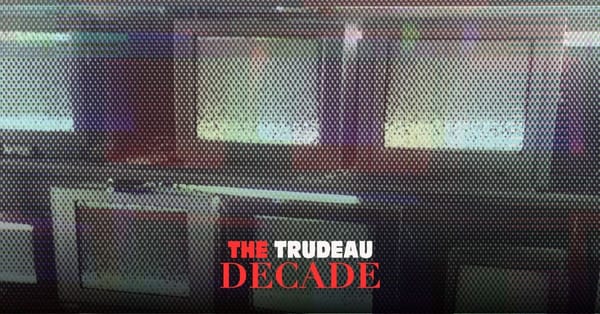The last year has been difficult for the left in the west.
Former Labour Party leader Jeremy Corbyn’s popular agenda offered a true counter-weight to austerity and neoliberalism espoused by both Conservatives and centrist forces within his party. But Corbyn failed to gain traction in the 2019 election campaign, and Labour was roundly defeated.
United States Senator Bernie Sanders’ defeat in the Democratic primaries was even more heartbreaking. For a brief moment, a social democrat appeared poised to overcome the combined institutional forces of the corporate media and the Democratic Party, but it didn’t happen.
We’re now left grappling with where to go from here, and what we can learn from these setbacks.
One path to success argued by the left is increased on-the-ground organizing. This is certainly correct: Organizing is a proven approach to mobilizing working class people and winning elections. Sanders’ team’s distributed organizing model, for example, has been rightfully lauded as an important innovation that will benefit the left for years to come. It’s also a key reason why progressive candidates such as Alexandria Ocasio-Cortez have occasionally been able to defeat entrenched incumbents.
But Sanders and Corbyn’s failures raise questions about whether organizing as the central strategy is enough to counter the power and influence of a targeted onslaught by corporate-backed media.
Leftist ideas are overwhelmingly popular, but they don’t get a fair hearing. A 2016 report from the Independent found that 75 per cent of press coverage during Corbyn’s first two months as Labour leader distorted and misrepresented his positions. Sanders’ struggles for fair coverage, even from supposedly ‘progressive’ outlets such as MSNBC are also well documented.
If the left wants to win power and enact our expansive agenda, we must tackle corporate media.
Corporate controlled outlets are failing due in part to the death of the advertising model. Television faces a demographic time bomb as young people increasingly get their news from online sources. Nightly newscast hosts are being replaced by trusted YouTube personalities, print newspapers by online newsletters, traditional AM radio shock-jocks by people like Joe Rogan, who recently signed a massive deal with Spotify, helping propel a new generation of potential corporate tech and media companies.
In Canada, the Toronto Star and its parent company was recently bought by two businessmen with ties to the Conservative Party after years of mounting debt. Many wonder what the future holds for this institution.
This crisis is creating an opportunity the left can’t ignore. Barriers to entry for building a media platform have fallen dramatically, creating a unique situation for the left, which has traditionally been shut out of mass media due to limited access to capital. But taking advantage of the corporate media’s decline won’t be easy.
First, institutional leftist forces in the environmental, labour and non-profit worlds need to treat building media the same way as building on-the-ground organizing capacity. For example, rather than launching a one-time advertising campaign, environmental organizations such 350.org could create a world-wide and local media operation of reporters, video hosts and podcasters that report environmental stories ignored by the mainstream media.
Building media will never, and should not, replace organizing. But new media platforms can supplement on the ground organizing by quickly scaling stories and messages to reach as many people as possible. As local news disappears, left institutional forces can fill the void. Just like we invest in local organizers to canvas communities and knock on doors, we should invest in reporters that can highlight and elevate local stories ignored by the corporate media.
Second, left media needs to aggressively expand into new formats, building large-scale platforms that challenge the right’s dominance. The rise of PragerU, a YouTube video network that Mother Jones claims is “quietly turning millennials into Conservatives,” illustrates how the right is radicalizing a new generation of activists. The Daily Wire and Brietbart’s ascent to the top news pages on Facebook show that new entrants can dominate a platform. We need to build mass alternatives to these reactionary voices that reflect popular will and not the interests and issues of the billionaire class.
Jacobin’s rapid expansion is a good example of what’s possible for left media. In recent years, the publication has grown, partnering with Africa is a Country, acquiring Tribune magazine in the United Kingdom, launching a publication in Germany, expanding into multiple podcasts and creating a rapidly expanding video presence. Growing a publication to reach a mass audience isn’t something the left should fear, but rather a necessary step to ensuring our movement reaches ever more diverse communities.
Finally, the left has a unique advantage over profit-driven media: We aren’t driven by a capitalist model that encourages cut-throat competition at all costs. Rather than competing against each other, left media can work together to share best practices, elevate each other’s publications and build an interconnected community that grows collectively.
Again, Jacobin is a good example of this. By partnering with former Sanders press secretary David Sirota and his new investigative reporting newsletter, Jacobin gains a powerful influential voice with mainstream reach. Likewise, Sirota’s newsletter benefits from Jacobin’s large audience, helping their newsletter rapidly grow and expand. Jacobin is now beginning to publish investigative journalism, a new area for the publication that could spawn an even larger presence online.
A newly launched non-profit news outlet called OptOut is another such example. It brings together some of the top leftist publications and podcasts — including Sludge, Jacobin and The Young Turks Investigates — with a promise to tackle corporate media, discover new leftist content and increase access to original content. These types of platforms are a natural step forward for leftist media, and will help audiences discover new shows and build a more connected community.
None of this will be easy, and we must be realistic about what’s possible. MSNBC won’t disappear in the next five, 10 or even 15 years. Billionaires are snapping up media properties, and the right is quickly filling the void of dying local news. The powerful never give up their influence willingly.
The success of publications like Jacobin in the U.S. and Novara Media in the U.K., and YouTube personalities such as David Doel and Kyle Kulinski, illustrate what’s possible. These publications and shows elevate fellow leftists, helping others grow their own YouTube, print, podcasts and online ventures. Decades from now, these groups could be the dominant media platforms that challenge MSNBC and CNN.
We’re at a critical juncture: The next few years will lay the groundwork for decades to come. Success is by no-means assured, and just like electoral victory, can be tantalizing. Challenging these powerful institutions will not be achieved through siloing and competition among each other, but by pooling our resources and supporting new burgeoning media by collectively elevating each other’s platforms and sharing our expertise.
Only by working together can we defeat the corporate-backed media.







